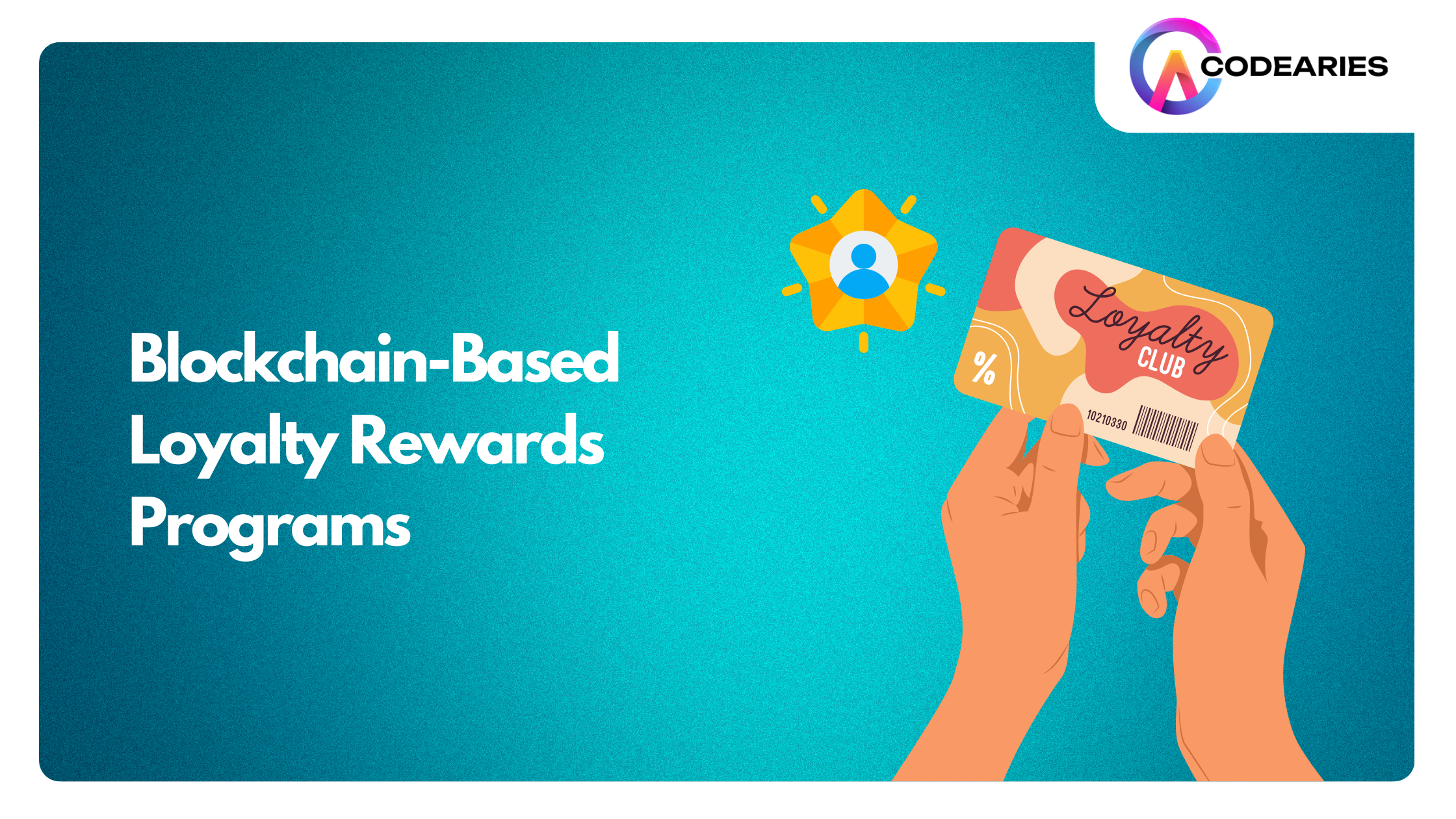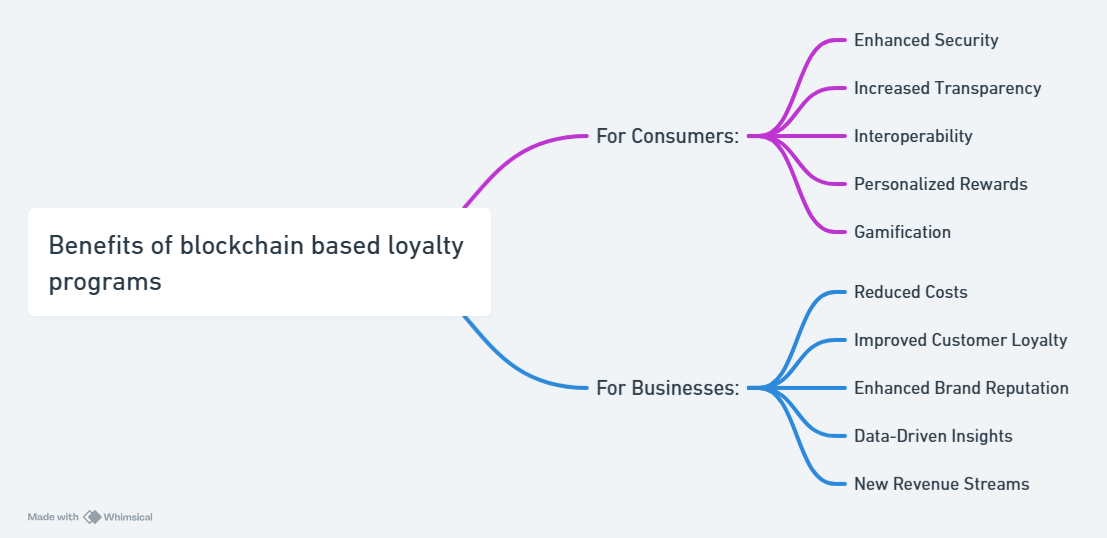
In today’s fast-paced digital marketplace, traditional customer loyalty programs often struggle to maintain their appeal. As consumers seek more value and transparency, blockchain-based loyalty rewards programs are emerging as a transformative solution. By leveraging blockchain technology, businesses are finding new ways to increase customer engagement, enhance data security, and improve the flexibility of loyalty points, making programs more enticing and efficient for customers and brands alike. From offering streamlined rewards to protecting user data, blockchain is a powerful innovation in the world of loyalty programs.
The Rise of Digital Loyalty Programs in a Changing Marketplace
Loyalty programs were once simple: customers made purchases, accumulated points, and redeemed them within a brand’s ecosystem. However, in a more interconnected world, these programs often lack the versatility and transparency that customers now expect. Blockchain offers a new approach to loyalty, enabling secure, decentralized transactions and greater interoperability between brands. This flexibility caters to customers who are looking for easy, valuable ways to engage, while helping businesses cut down on fraud, reduce costs, and drive meaningful brand loyalty.
Blockchain-Based Loyalty Rewards Programs
Blockchain loyalty programs operate on a decentralized ledger, allowing all transactions to be verified without needing a single, central authority. This setup creates opportunities for new types of rewards programs, where loyalty points can be shared across different platforms, offering customers more choice and allowing businesses to innovate their approach to customer loyalty. With features like transparency, smart contracts, and interoperability, blockchain makes it easier than ever for businesses to build trust and engagement through their loyalty programs. The global loyalty management market size was valued at USD 11.71 billion in 2023. The market is projected to grow from USD 13.31 billion in 2024 to USD 41.21 billion by 2032, exhibiting a CAGR of 15.2% during the forecast period.
The global loyalty management market size was valued at USD 11.71 billion in 2023. The market is projected to grow from USD 13.31 billion in 2024 to USD 41.21 billion by 2032, exhibiting a CAGR of 15.2% during the forecast period.
How Blockchain is Changing Rewards Programs
Blockchain-based programs allow for flexible point usage, where loyalty tokens function like digital assets. This flexibility allows customers to use their points across partnered brands or convert them to cash, creating a seamless experience and enhancing the appeal of loyalty points. Blockchain ensures that rewards can’t be manipulated or devalued, offering additional security and customer trust.
Key Features of Blockchain Technology in Loyalty Programs
Blockchain is a decentralized digital ledger that records transactions securely, with these essential features making it uniquely suited for loyalty programs:
- Transparency: Blockchain’s open ledger system lets authorized users track and verify transactions, increasing trust between brands and customers.
- Security: With decentralized data storage and encryption, blockchain minimizes the risk of fraud and data breaches.
- Smart Contracts: These self-executing contracts automate transactions like point issuance and redemptions, minimizing administrative work.
How Blockchain-Based Loyalty Works
Blockchain loyalty programs are built around two main components: smart contracts and digital tokens. Smart contracts handle tasks like point accumulation and redemptions, while digital tokens represent loyalty points, which can be used across various platforms. This setup creates a frictionless experience for customers and simplifies reward distribution for brands.
Smart Contracts and Automation in Loyalty Rewards
Smart contracts automate reward transactions, removing the need for manual verification. For example, customers who make a purchase automatically receive points through the smart contract, which ensures rewards are issued quickly and accurately, creating a streamlined process for both customers and brands.
The Power of Tokenization in Loyalty Programs
Understanding Loyalty Tokens
In blockchain-based loyalty programs, digital tokens represent loyalty points, allowing for more flexible transactions. These tokens act like currency, enabling customers to redeem points across brands, trade them with other users, or even convert them to other assets depending on program rules.
Advantages of Tokenized Rewards
Tokenized points offer higher flexibility, letting customers use them across multiple platforms or even transfer them between accounts. This interoperability enhances the loyalty experience, increasing the likelihood that customers will actively engage with the program.
Real-World Implementations of Blockchain Loyalty Programs
Blockchain technology is gaining traction in various sectors, including customer loyalty programs, where its innovative features promise to transform the way brands engage with consumers. Here are some noteworthy examples of blockchain-based loyalty programs currently in action:
Chanticleer Holdings
This restaurant franchise has launched a blockchain-powered loyalty program enabling customers to earn and redeem cryptocurrency tokens across its various dining brands. This approach not only enhances transparency but also facilitates seamless reward transfers between different restaurant chains.
Open Loyalty
This platform offers businesses a blockchain-based solution for creating and managing loyalty programs. It includes functionalities for user management, smart contract execution, and asset management, providing a comprehensive toolkit for businesses to engage their customers.
Other Notable Companies
-
- American Express: Actively exploring blockchain technology to enhance security and transparency within its loyalty initiatives.
- Boxed: Investigating how blockchain can streamline loyalty rewards and foster partnerships across brands.
- AirBaltic: Looking into blockchain to create a more efficient and secure loyalty program for its customers.
- Venmo: Considering blockchain solutions to expedite peer-to-peer transactions and potentially integrate loyalty rewards.
- Shake Shack: Experimenting with blockchain technology to strengthen customer loyalty and optimize reward structures.
The Future of Blockchain-Based Loyalty Rewards Programs
The future of blockchain-based loyalty rewards programs holds great promise for transforming brand interactions and reward systems. Key trends include enhanced transparency and security through immutable records and advanced data privacy measures. Blockchain enables interoperability, allowing seamless transfer of loyalty points across brands and facilitating collaborations for broader reward ecosystems. Personalized rewards can be delivered via AI insights and tokenized systems, while gamification elements and social sharing will enhance customer engagement. However, challenges like scalability, user education, and navigating the evolving regulatory landscape remain. Ultimately, leveraging blockchain technology can create more engaging and rewarding experiences, fostering customer loyalty and driving business growth.
Conclusion
In conclusion, blockchain-based loyalty rewards programs are transforming customer engagement strategies. They meet today’s demand for transparency, security, and flexibility. Using blockchain, businesses can build decentralized and interoperable loyalty systems. These programs not only improve the customer experience but also help reduce fraud and lower operational costs. The ability to use tokenized rewards across multiple platforms empowers consumers, fostering deeper connections with brands. As the industry moves forward, overcoming challenges such as scalability and regulatory complexities will be crucial. However, the potential for increased customer loyalty and innovative rewards solutions positions blockchain as a transformative force in the loyalty landscape, promising a more dynamic and rewarding future for both consumers and businesses.
FAQs
What is the blockchain-based employee reward system?
A blockchain-based employee reward system leverages blockchain technology to manage and distribute rewards for employees. This system enables secure, transparent, and tamper-proof tracking of employee achievements and performance. Rewards can include cryptocurrency, tokens, or other digital assets that employees can redeem for various benefits, such as bonuses, gifts, or experiences. The decentralized nature of blockchain ensures that all transactions are verifiable and that rewards cannot be manipulated, enhancing trust and engagement among employees.
What is the Web3 loyalty program?
A Web3 loyalty program is a customer loyalty initiative built on decentralized web technologies, primarily leveraging blockchain. These programs enable brands to create interoperable loyalty systems where customers can earn and redeem rewards across different platforms without the constraints of traditional loyalty programs. By utilizing smart contracts and digital tokens, Web3 loyalty programs provide enhanced transparency, security, and personalization. They often incorporate elements like gamification and community engagement, empowering customers to actively participate and benefit from the ecosystem.
What is a CRM loyalty program?
A CRM (Customer Relationship Management) loyalty program integrates customer loyalty initiatives within a CRM system to enhance customer engagement and retention. This program tracks customer interactions, preferences, and purchasing behaviors, allowing businesses to tailor rewards and communication strategies effectively. By leveraging customer data, CRM loyalty programs can provide personalized offers and experiences, ultimately driving brand loyalty and improving customer satisfaction.
What technology is used in loyalty programs?
Loyalty programs typically utilize a combination of technologies, including customer relationship management (CRM) software, mobile applications, and data analytics tools. Additionally, blockchain technology is increasingly being adopted for its transparency and security features. Some programs also incorporate artificial intelligence (AI) to analyze customer behavior and preferences, enabling personalized reward offerings. Businesses use QR codes and NFC (Near Field Communication) technology for easy reward redemption, while cloud-based solutions efficiently manage and scale these programs.


